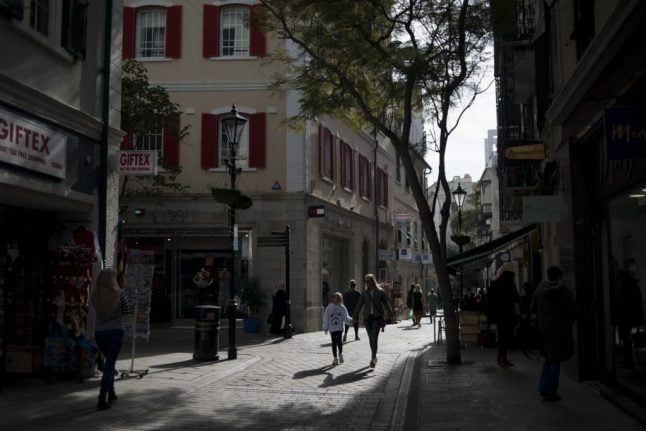The measure, beginning at 10:00 pm (2100 GMT) Saturday, will remain in force for 14 days meaning Gibraltar's 34,000 residents can only leave home for essential shopping, to work, exercise or for medical reasons.
Over the past month, the number of cases in this tiny British enclave at the southern tip of Spain has more than doubled, rising to 2,304, up from 1,035 cases on December 2, Chief Minister Fabian Picardo said.
“The numbers of new infections with COVID-19 in our community are remarkably high and concerning,” he told a news conference, saying the virus was spreading “more quickly than we can control it”.
Officials are concerned that the soaring rate of infections may be linked to the new coronavirus variant which emerged in the UK in November although so far, Gibraltar has only confirmed one such case.
“The behaviour of the virus with such massive infectivity suggests that we are seeing the new, more infectious variant at play here. But we cannot confirm that genetically,” Picardo said.
READ ALSO: Where in Spain has new British variant of coronavirus been detected?
Gibraltar only registered its first death from Covid-19 on November 11, but that figure has now risen to seven.
Despite its proximity to hard-hit Spain, which has counted nearly 2 million cases and over 50,000 deaths, Gibraltar has not imposed any restrictions on its border which is crossed daily by 15,000 workers.
Although the frontier will remain open, movement will be restricted to essential work or medical reasons.
Gibraltar is set to roll out its vaccination programme on January 9 using the Pfizer vaccine.
The lockdown came two days after London and Madrid reached an agreement that will see Gibraltar included in the European Schengen zone to keep movement fluid on its border in a landmark deal just hours shy of the final Brexit deadline.
READ ALSO: 'Let's see how it goes': Gibraltarians wary but relieved after deal



 Please whitelist us to continue reading.
Please whitelist us to continue reading.
Member comments